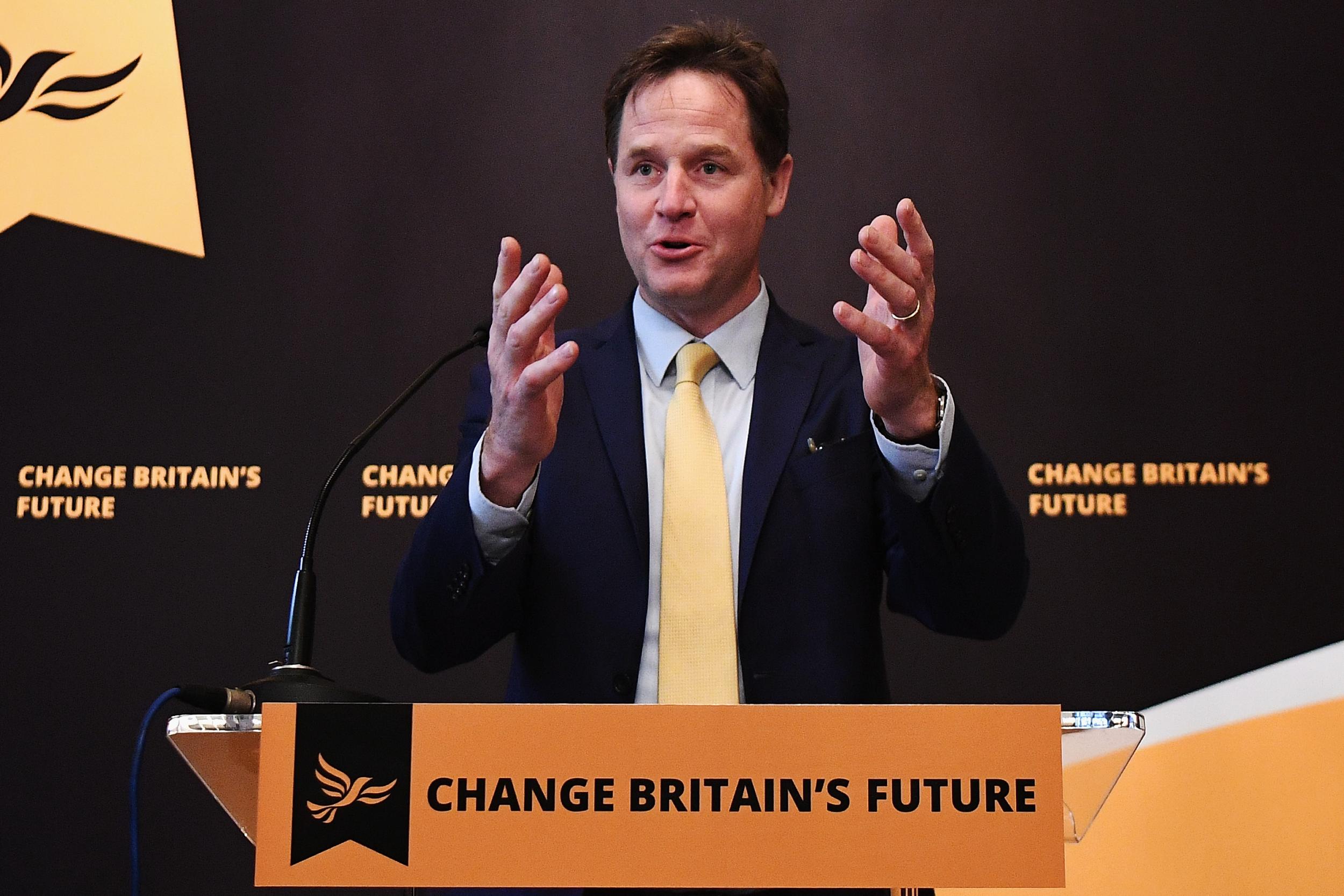Nick Clegg claims legalising cannabis would improve public health
The former Deputy Prime Minister also reiterated claims laid out in the Lib Dem manifesto that a legal cannabis market could net the Exchequer £1bn in taxes

Legalising cannabis in the UK would improve public health, claims former Deputy Prime Minister Nick Clegg.
In a blog post for the British Medical Journal, the Liberal Democrat MP argued that introducing a regulated market would protect users from dangerous strains that can lead to episodes of psychosis.
Citing a 2015 study in south London, Mr Clegg said that “skunk” was a factor in a quarter of patients with first-episode psychosis, whereas people who smoked lower-potency cannabis showed no increased risk.
He went on to argue that regulation would allow the Government to cap maximum strength of strains and ensure that all strains contained cannabidiol (CBD), a protective component that can mitigate against the negative health effects of tetrahydrocannabinol (THC).
In recent years, growers have been removing CBD from plants to produce stronger strains. CBD can protect users from anxiety and paranoia as well as the risk of addiction.
Mr Clegg also reiterated claims laid out in the Lib Dem manifesto that a legal cannabis market could net the Exchequer £1bn in taxes.
He wrote: “We are not arguing to “liberalise” drug laws: cannabis of unknown content and potency is already available to any adults and children who want it.
“This is a debate about the merits of regulation versus a system without any control. The opponents of regulation should ask themselves this: what other public health problem do we contract out entirely to organised criminals?”
Although Mr Clegg alluded to the potential financial benefits of legalisation, which he says would bring in tax revenue that is otherwise lost to organised crime, he warned that the UK should learn the lessons from the alcohol and tobacco industries. “The risks of unfettered commercialisation are real,” he said.
Mr Clegg argued for strict regulation from the start, including plain packaging and a ban on all advertising to prevent manufacturers from stimulating demand.
The Liberal Democrats became the first major political party to include cannabis legalisation as an election pledge when they released their manifesto on 17 May. Neither the Conservative nor Labour party reference the issue in their manifestos.
In an interview with Robert Peston last month, Prime Minister Theresa May said she did not believe in making cannabis use legal because she saw it as a gateway drug.
Labour leader Jeremy Corbyn has hinted in the past that he would decriminalise cannabis for medicinal purposes, although he would not support legalising recreational drugs.
Join our commenting forum
Join thought-provoking conversations, follow other Independent readers and see their replies
Comments